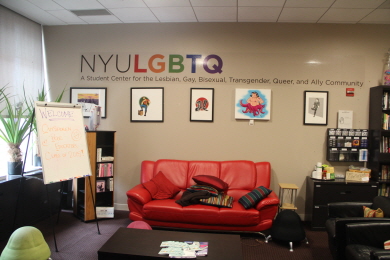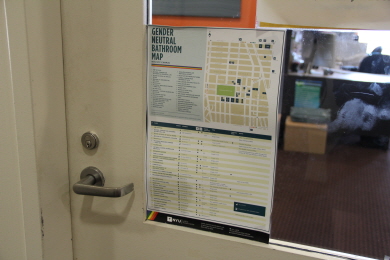Although society is growing ever more diverse, society’s norms, beliefs and values have not been able to keep up with recent changes. In some societies, including that of Korea, homogeneity is still regarded as the cultural or ideological core of social unity and integration. However, blind pursuit of homogeneity often results in marginalizing some groups of people who are unable to fit within the boundaries. As a countermeasure, more and more people assert the need for social inclusion and tolerance in order to embrace minority groups. Inclusion refers to an act of social tolerance and acceptance that allows the coexistence of groups or individuals despite their differences in age, ethnicity, gender identity, sexual orientation and disability.

With a view to underscore the importance of social tolerance and inclusion as the vital ingredient in the making of dynamic Korea and its academic communities, reporters from the Ewha Media Center comprising Ewha Voice, Ewha Weekly, and Ewha University Broadcasting System conducted overseas research in New York. In two special articles, Ewha Voice will focus on two groups, people who identify themselves as lesbian, gay, bisexual or transgender (LGBT) and people with disabilities. In this issue, as the first article of the two-part special, Ewha Voice will shed light on the way in which New York City with its universities and local communities is making different efforts to include LGBT people as important part of its vital life and spirit.
Why does inclusion on campus matter?
Pauline Park, an activist who is involved in accommodating LGBT students, believes that the concept of inclusion is not as simple as whether or not the university has full-time staff at its LGBT Center. Rather, the topic should be dealt with much care and concern, and applied distinctively according to the specific situations on campus.
“On campus, inclusion is not a goal itself,” Park remarked. “It is a means for students, faculty and staff to have first-hand experiences of the diverse world that we live in.”
Park emphasizes that a school should take various aspects of school services into consideration. Schools should make sure whether health care, housing, class syllabi, and school regulations are designed inclusively for LGBT students.
Also, Park’s personal experiences as a university student made her realize that creating an inclusive campus matters greatly to the everyday lives of LGBT students.

When she was a student, there was only one LGBT student group, which had four members on the entire campus. The school provided them an old, empty room and did not arrange any staff members to support the group. Also, these LGBT students, including Park, were often ostracized by other students because of their sexual orientations.
“The school community’s lack of knowledge and support toward the LGBT population compelled me to first come out as gay, and then finally as a MTF (male-to-female) transgender, even though I had known my sexuality for a long time and had remained quiet until then,” Park confessed. “Coming out as a gay or lesbian person was ‘relatively’ more acceptable than coming out as transgender at the time.”
For LGBT students, having an inclusive space on campus means more than just having a safe place to stay. Having a designated space offers them the opportunity to actively engage with other LGBT students or allies.
“Students who identify themselves as LGBT feel much safer meeting other LGBT students and allies at LGBT-inclusive spaces on campus,” said Gianna Collier-Pitts, a junior at NYU. “Also, events and activities that NYU holds for LGBT students really helped me become a person who is comfortable with my own identity.”

